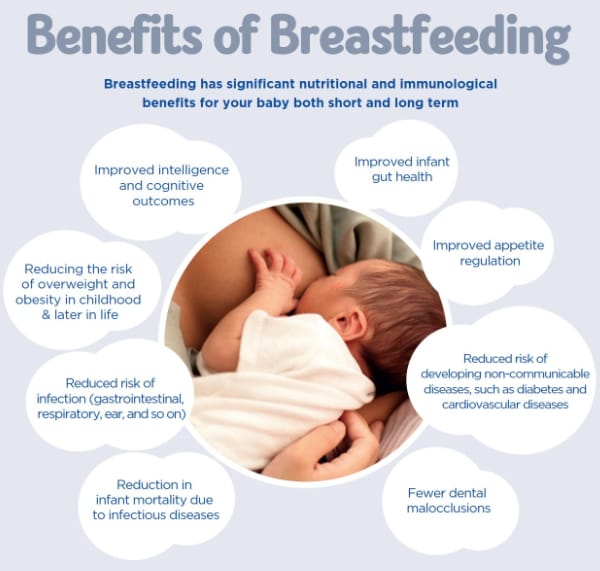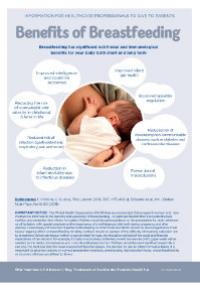Overview
When it comes to nurturing infants in early life, breast milk is the gold standard and is the optimal source of baby nutrition1. The benefits of breastfeeding are numerous, it contains the essential nutrients infants need for healthy growth and development1, and breastfeeding is associated with many nutritive and non-nutritive benefits2 including:
- Providing a greater protection from infection and disease for infant3
- Helping to build a strong emotional bond between mum and infant3
- Reducing the risk of obesity, cardiovascular disease, and diabetes later in life for infant3
- Reduced risk of breast and ovarian cancer for mum3

The benefits of breastfeeding are both long and short term for mother and infants and is therefore a focus for public health. The Department of health (DOH) and World health organisation (WHO) recommends exclusive breastfeeding for the first 6 months of life and this should be continued into weaning4,5.
The healthcare professional’s role in breastfeeding support
Parents may require some advice and support with breastfeeding and would often seek this help from their healthcare professional as early as their antenatal period, this is a good time to begin support and fathers can also be involved. They should be informed of the benefits of breast milk as well as information on how to breastfeed and where to go to seek help if required6. This will help build parents confidence when they start breastfeeding7.
Breastfeeding resources for healthcare professionals and parents
Downloadable tools for parents
- How to breastfeed a baby: A downloadable help-sheet in 8 languages
- Responsive feeding and early childhood development: A downloadable help-sheet for parents
Video resources
- Human Milk Oligosaccharides: An educational video for healthcare professionals
CPD accredited Webinar – View on demand

Download the factsheet

